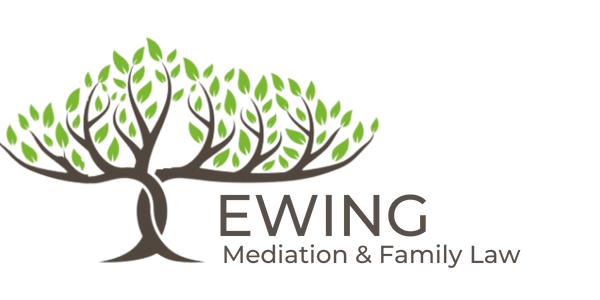Divorce Mediation vs. Collaborative Divorce: What’s the Difference?

Divorce is a challenging and emotional process, and couples often seek alternatives to the adversarial courtroom setting. Two increasingly popular options are divorce mediation and collaborative divorce. These approaches prioritize open communication, cooperation, and compromise to help couples dissolve their marriages amicably. In this article, we’ll explore the key differences between divorce mediation and collaborative divorce and emphasize why having an attorney is essential for both processes.
What is Mediation?
Divorce Mediation is a process where a neutral third party, known as the mediator, facilitates discussions between the divorcing couple. The goal is to help the couple reach a mutually acceptable agreement. Here’s how mediation typically works:
- Initial Meeting: The couple meets with the mediator to discuss their concerns, goals, and the issues to be resolved.
- Negotiation: The mediator guides the couple through discussions, assisting them in identifying common ground and finding solutions to their disputes.
- Drafting the Agreement: Once an agreement is reached, the mediator drafts a formal document detailing the terms, which the couple can review with their respective consulting attorneys, which are recommended but not required.
- Legal Review: Each spouse can consult with an attorney to ensure the agreement protects their rights and interests.
- Once the agreement (the Judgment) is approved by both parties, they sign it and it is submitted to the court for filing.
What is Collaborative Divorce?
Collaborative Divorce is another alternative to traditional litigation that encourages cooperation between spouses. In this process, each party is represented by their own attorney, and the couple commits to working together to resolve issues outside of the courtroom. Here’s how collaborative divorce typically unfolds:
- Initial Meeting: Both spouses, along with their attorneys, sign a participation agreement, committing to resolve their differences collaboratively, and not go to court (litigation).
- Negotiation and Problem-Solving: The couple and their attorneys engage in negotiations to reach a settlement that meets both parties’ needs and concerns.
- Experts and Specialists: If necessary, experts such as financial advisors or child specialists may be brought in to assist in the resolution.
- Formal Agreement: Once an agreement is reached, it is drafted and submitted to the court for approval, finalizing the divorce.
Do I Need an Attorney for Collaborative Divorce or Mediation?
The answer is a resounding yes. While both mediation and collaborative divorce aim to minimize conflict, protect your interests, and avoid litigation, having legal representation is essential for several reasons:
- Understanding Your Rights: Attorneys ensure you are fully aware of your rights and options throughout the process. They can explain complex legal terms and help you make informed decisions.
- Negotiating Fairly: In mediation, the mediator is neutral and does not provide legal advice to one of the parties to the exclusion of the other. Having your attorney ensures that you negotiate fairly, and the final agreement protects your rights. If your mediation issues are fairly straightforward, both parties agree, and both parties are in a similar bargaining position, having separate consulting attorneys may not be necessary. However, if the mediator strongly urges you to seek the counsel of a consulting attorney, please do so!
- Drafting Legal Documents: Attorneys can draft legally binding documents that accurately reflect the terms of your agreement, reducing the risk of future disputes. Both attorney mediators and collaborative professionals are able to prepare the agreement documents.
- Court Approval: In collaborative divorce, the final agreement still needs court approval. An attorney will ensure that all necessary paperwork is filed correctly.
With both mediation and collaborative divorce, the parties completely avoid the necessity to go to court.
Why Contact Ewing Mediation & Family Law
Ewing Mediation and Family Law specializes in providing a compassionate and effective alternative to traditional divorce litigation. With over 30 years of experience, their expertise, successful outcomes, and compassionate approach set them apart.
Choosing Ewing Mediation means choosing:
- Expertise: Over 30 years of skill and knowledge in mediation and family law.
- Successful Outcomes: Consistent track record of helping spouses resolve issues effectively and amicably.
- Compassion: Understanding the emotional toll of divorce and providing support every step of the way.
If you’re facing divorce, child custody, or other family-related issues in Torrance and the South Bay , California, Ewing Mediation and Family Law can guide you toward a resolution that meets your legal needs while preserving your well-being and that of your loved ones. Contact them to navigate the challenges of divorce litigation and find a path forward that serves your interests well.
